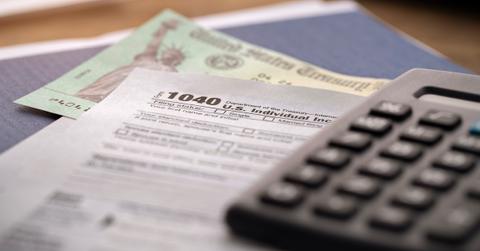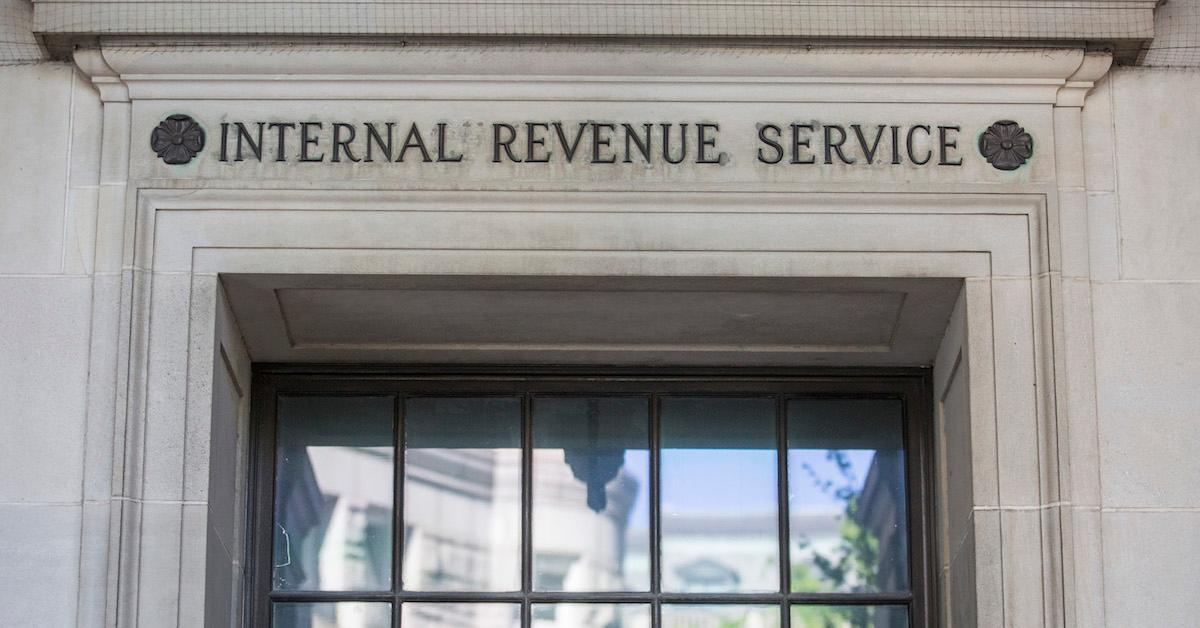Do You Need to Set Aside Money for Taxes From Your Stimulus?
If you received a stimulus check this year you may wonder if that is taxed income. Here's the lowdown.
Aug. 20 2020, Updated 9:10 a.m. ET

In April, the federal government started sending out stimulus payments to help ease the financial burden caused by COVID-19. While Congress has yet to pass a second stimulus, one is expected after the congress reconvenes in September. Before you spend the money, you're probably wondering if stimulus checks are taxed.
Do you pay taxes on stimulus checks?
The shortest and clearest answer is no, your stimulus payment won't be taxed. It won't be added to your 2020 income and will not reduce your tax refund. So how does that work?

Essentially, any stimulus payment you receive isn't counted as taxable income. It's actually considered a new federal tax credit for the year 2020. But instead of waiting to receive the money when you file your 2020 taxes, you're receiving the money now.
The stimulus check will also not change the amount of money you get through federal benefits like Social Security and state-based unemployment benefits.
Can stimulus checks be garnished?
Unfortunately, in certain situations, your stimulus checks can be seized or garnished. If you have past-due child support and your state has referred the payments to the Treasury Offset Program (TOP) then your stimulus payment can be garnished to pay off that debt.
If you have any bank debt, the institution can seize your payment. But this is only true if you owe money to the bank where the stimulus payment is directly deposited.

Private debt collectors can garnish all or part of your stimulus payment. If you've been ordered through a court order to pay a private debt, debt collectors can take what they need to pay the debt off. There have been calls to the U.S. Treasury Department to prevent debt collectors from seizing stimulus checks, but so far nothing has changed in that regard.
If you're filing for bankruptcy, have tax debt, or you've defaulted on your student loans, your stimulus payment can't be garnished to pay off the debt. In the case of bankruptcy, receiving the stimulus check wouldn't increase the amount you had to pay back.
What to do if your payment is garnished
Even if there's a potential for your stimulus payment to be garnished, you still have some options to protect it. Here are a few things you can try.
- Contact your debt collector to see if they can work with you to pay back the money you owe, keeping the stimulus check safe.
- Call your state’s child support office to see if you can catch up on the child support payments without using the stimulus payment.
- Meet with someone at your bank to learn about possible arrangements for the debt you owe.
- Check with your state attorney general’s office or your state’s consumer protection agency about what options you have before declaring bankruptcy. You can also try to get help from a nonprofit consumer advocacy organization.
The year 2020 has thrown the entire nation for a loop. So, for now, these stimulus checks won't be taxed. After all, the stimulus check was sent out with the hope that it would relieve many from financial stress without causing more in the future.
